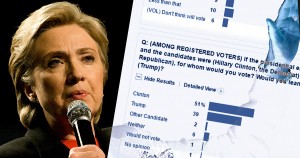Melania Trump’s beautifully adequate speech last night at the prime-time opening of the Republican National Convention in Cleveland clashed with the ugly chaos earlier.
Everyone knew the convention’s rules package would be a point of conflict. A wee bit of open democracy might have unified delegates. Instead, the rules were rushed through on a voice vote, immediately after which the chair ignored delegates loudly calling for points of order as well as demanding a roll-call vote on the package.
In the uproar that ensued, that convention chair, Arkansas Congressman Steve Womack, inexplicably left the stage unmanned.
“I’ve never seen the chair vacated like that,” said Utah Sen. Mike Lee, who had tried and failed to get recognized.
Morton Blackwell, a 32-year RNC member, complained the process was “crooked”; former Virginia Attorney General Ken Cuccinelli used the word “disgusting.”
After what seemed an eternity, Womack appeared back on stage, again calling a voice vote, quickly ruling that the “Ayes” had it over the “Nays,” and then ignoring yet more delegates trying to be recognized.
He finally explained that not enough states had called for the roll call — three states had withdrawn their petition. No mention that the long delay had allowed Trump and RNC operatives to pressure enough delegates into withdrawing their petition.
This served as “a glimpse into the future of a Trump presidency,” suggested former New Hampshire Sen. Gordon Humphrey, adding that Trump supporters “act very much like fascists, shouting down the opposition, treating them roughly.”
Hyperbole? Sure. But yesterday’s events do indicate a lack respect for democratic process.
This is Common Sense. I’m Paul Jacob.











